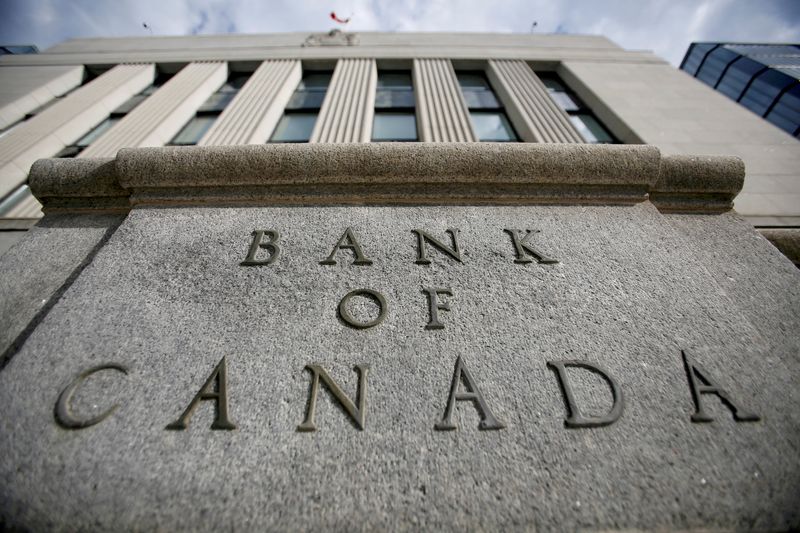By Fergal Smith and Steve Scherer
TORONTO (Reuters) - The Bank of Canada's move to come off the sidelines after a five-month pause has sent a signal that some economic pain will be needed to tame stubborn inflation, leading investors to raise bets on a hard landing for the economy.
The central bank is worried that the Canadian economy is running too hot for inflation to return to its 2% target and that if it waits to act, inflation expectations could rise, making matters worse.
Immigration, a key source of strength for the economy, is growing at a record pace. But some other economic supports, such as pandemic-era savings, government spending and extending mortgage amortizations are likely to fade over the coming years, while an increasing share of home loans will renew at higher interest rates, analysts say.
That could mean the economy becomes more sensitive to increased borrowing costs just as consumers start to feel the effects of the Bank of Canada's latest rate hikes. The central bank lifted its benchmark rate to a 22-year high of 4.75% this month and is expected to tighten further in July or September.
A hard landing for the economy, or a recession, could raise unemployment, something the BoC has been hoping to avoid. It could also lead to a reversal of rate hikes, perhaps as soon as next year.
"If central banks such as the Bank of Canada continue to raise rates at this pace, they risk tilting the economy into a recession and forcing themselves into an eventual embarrassing climb down," said Karl Schamotta, chief market strategist at Corpay.
"Markets are convinced that this is the exact scenario that is playing out."
The BoC is not the only central bank that has turned more hawkish in recent weeks, but yield curve inversion, which is usually seen as a predictor of recession, is even more pronounced in the Canadian bond market than in the United States.
The Canadian 10-year rate has fallen further below the 2-year this month to a gap of about 130 basis points, marking the deepest inversion in Refinitiv data going back to 1994.
"The question is not what is the economy doing now. The question is what will the headlines be reading 12 months from now," said David Rosenberg, chief economist and strategist at Rosenberg Research.
"I'm not going to be betting against interest rates and I'm not going to be betting against policy lags."
The BoC says it takes between six and eight quarters for rate hikes to sink in.
Data on Tuesday showed Canadian inflation easing to its slowest pace in two years, but underlying price pressures remained strong and the BoC has said that GDP could outrun its 1% growth projection for the second quarter, after rapid growth at the start of the year.

The data has left analysts pushing back their forecasts of a slowdown to later in 2023 or in 2024 but accompanied by higher than anticipated interest rates.
"What I think most economists would agree on is that the downside risks - the really severe downside risks - have increased in their likelihood of materializing," said Royce Mendes, head of macro strategy at Desjardins.
